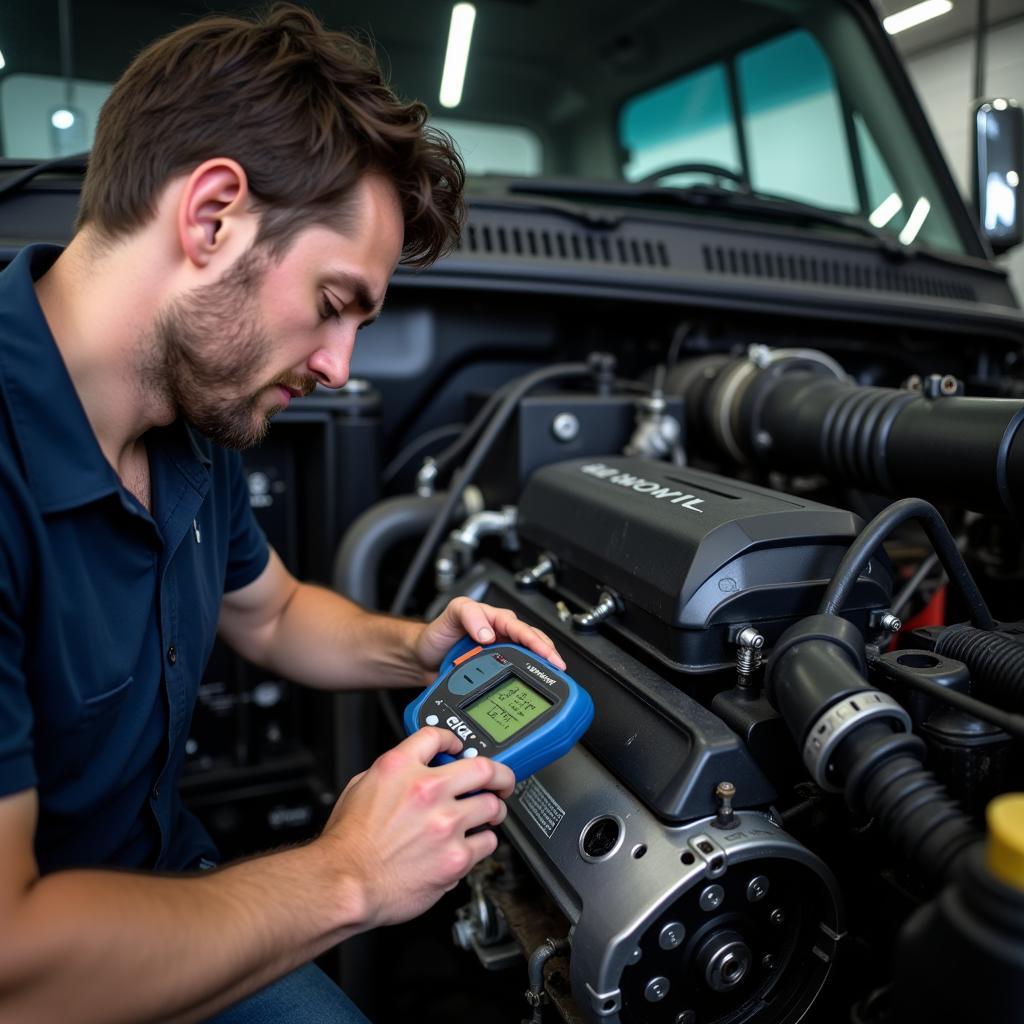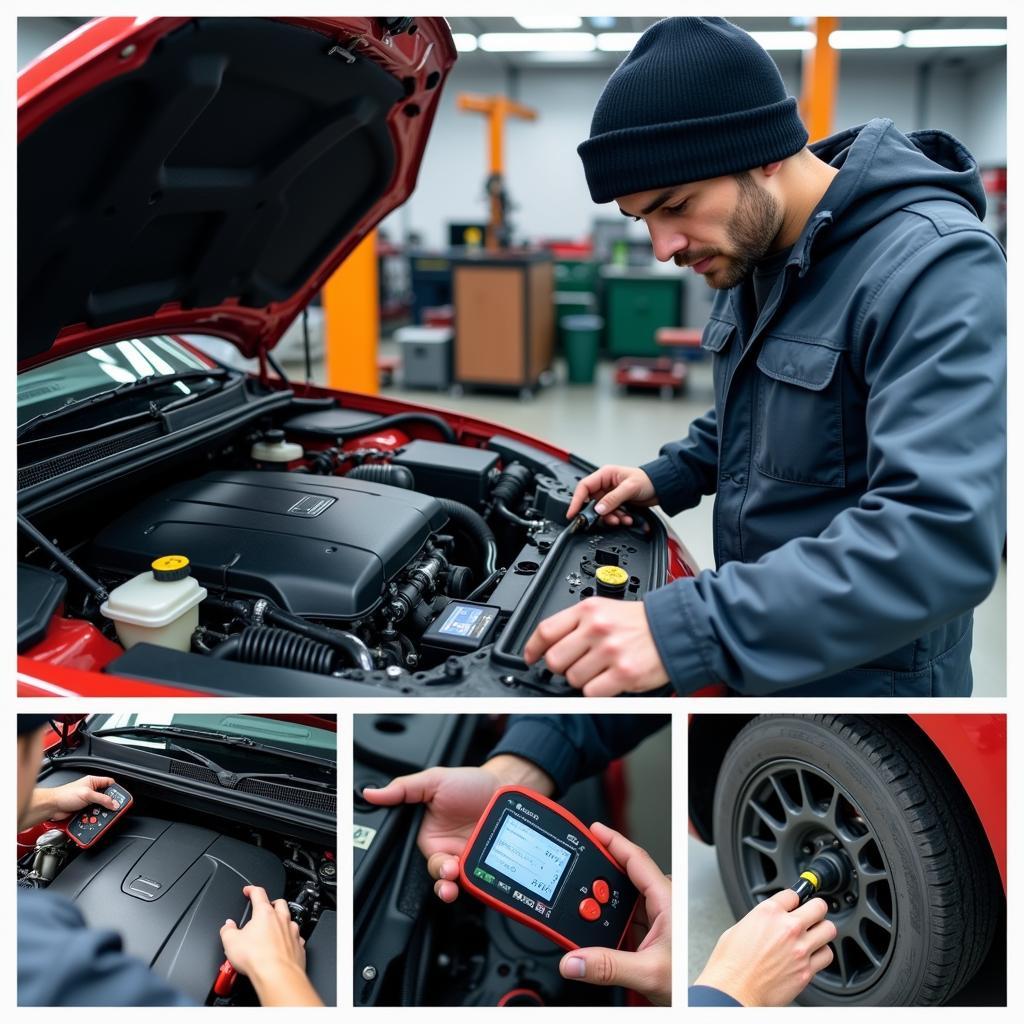How Often Should a Diesel Car Be Serviced?
Maintaining your diesel car in top condition requires regular servicing. But How Often Should A Diesel Car Be Serviced? The answer isn’t always straightforward. While older guidelines often suggested annual servicing, modern diesel engines and advanced lubricants allow for more flexible schedules. Understanding the factors influencing service intervals is crucial for optimizing performance, longevity, and fuel efficiency.
After the initial “break-in” period, many modern diesel vehicles can go 10,000 miles or even a year between services. However, this isn’t a universal rule. Factors like driving conditions, driving style, and the specific make and model of your vehicle all play a role. how often should service your car explains general car servicing frequency.
Factors Influencing Diesel Car Service Intervals
Several key factors determine the ideal service interval for your diesel car:
Driving Conditions
- City Driving: Frequent stop-and-go traffic puts more strain on the engine, necessitating more frequent servicing.
- Highway Driving: Long stretches of consistent driving are generally less demanding, potentially allowing for longer service intervals.
- Extreme Temperatures: Both extreme heat and cold can impact oil viscosity and engine performance, requiring adjustments to the service schedule.
Driving Style
- Aggressive Driving: Hard acceleration and braking generate more heat and wear, requiring more frequent servicing.
- Gentle Driving: Smooth driving habits are less stressful on the engine, potentially extending service intervals.
Vehicle Make and Model
- Manufacturer Recommendations: Always consult your vehicle’s owner’s manual for specific service recommendations. This is the most reliable source of information.
- Engine Type and Size: Different engine types and sizes have unique requirements that influence service intervals.
 Diesel car navigating city traffic
Diesel car navigating city traffic
Understanding Your Diesel Car’s Service Needs
Modern diesel cars are equipped with sophisticated onboard computer systems that can monitor various parameters and alert you when a service is due. However, it’s essential to understand the different types of services and their respective frequencies. Turbocharged diesel cars have specific needs. See how to service a turbo car for further information.
Oil Changes
Oil changes are the most frequent service requirement for any car, including diesel vehicles. Oil degrades over time and loses its lubricating properties, increasing engine wear. While older recommendations suggested oil changes every 3,000 miles, modern synthetic oils and advanced engines often allow for longer intervals.
Filter Replacements
Various filters, such as air filters, fuel filters, and cabin air filters, require periodic replacement. These filters trap contaminants and prevent them from entering the engine or the vehicle’s cabin.
Fluid Checks and Top-offs
Essential fluids like coolant, brake fluid, and power steering fluid should be checked regularly and topped off as needed. These fluids play critical roles in maintaining various systems in the car. What is involved in car service covers the details.
When to Consult a Professional
While some basic maintenance tasks can be performed by car owners, consulting a qualified mechanic is crucial for more complex procedures. A professional mechanic has the expertise and equipment to diagnose and address any potential issues. If you are looking for a reputable car service in Silverthorne, Colorado, where should you get your car serviced in silverthorne colorado can help.
Expert Insights
“Regular maintenance is an investment, not an expense,” says John Miller, a certified diesel mechanic with over 20 years of experience. “It can significantly extend the life of your engine and prevent costly repairs down the road.” Another expert, Sarah Johnson, an automotive engineer specializing in diesel engines, adds, “Ignoring service intervals can lead to reduced fuel efficiency and increased emissions.”
 Mechanic inspecting a diesel engine
Mechanic inspecting a diesel engine
Electric cars have different servicing requirements than diesel cars. Explore what servicing do electric cars need to learn more.
Conclusion
How often should a diesel car be serviced? The answer depends on various factors, including your driving conditions, driving style, and the specific make and model of your vehicle. Always consult your owner’s manual for manufacturer recommendations. Regular servicing is crucial for maintaining optimal performance, extending the lifespan of your diesel car, and ensuring a smooth and enjoyable driving experience.
FAQ
- What is the average service interval for a diesel car? It can range from 10,000 to 20,000 miles or once a year, depending on various factors.
- What are the signs that my diesel car needs servicing? Unusual noises, decreased fuel efficiency, and warning lights on the dashboard are potential indicators.
- Can I service my diesel car myself? Some basic maintenance can be done at home, but complex procedures require professional assistance.
- What is included in a diesel car service? Typically, oil changes, filter replacements, fluid checks, and inspections of various systems.
- How much does a diesel car service cost? The cost varies depending on the service required and the location.
- Why is regular servicing important for diesel cars? It helps maintain performance, fuel efficiency, and engine longevity.
- What happens if I skip a service? Skipping services can lead to decreased performance, increased emissions, and potential damage to the engine.
Common Service Scenarios
- Scenario 1: City driving with frequent stop-and-go traffic. More frequent servicing is recommended.
- Scenario 2: Primarily highway driving with long stretches of consistent driving. Longer service intervals may be possible.
- Scenario 3: Driving in extreme temperatures (either hot or cold). Adjustments to the service schedule might be necessary.
Further Reading
For more information on car maintenance and servicing, explore our other articles on CarServiceOnline.
Need assistance? Contact us via WhatsApp: +1(641)206-8880 or Email: [email protected]. Our customer service team is available 24/7.

